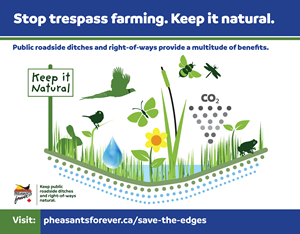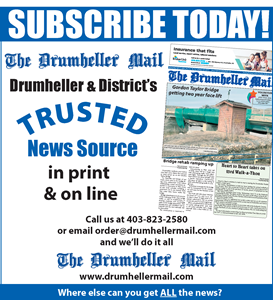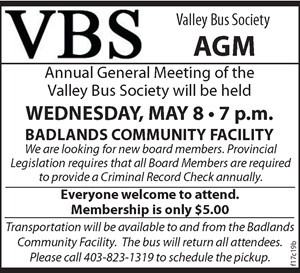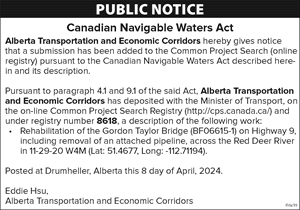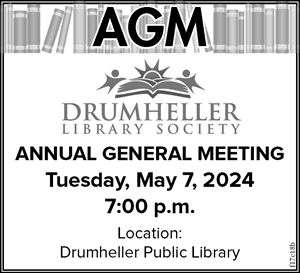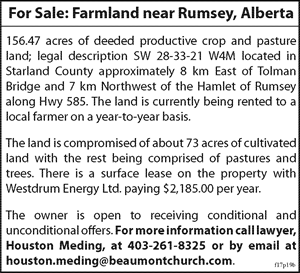 Wheatland County Council is hoping to pressure the government into taking more care in protecting the environment when exploring and developing natural resources.
Wheatland County Council is hoping to pressure the government into taking more care in protecting the environment when exploring and developing natural resources.
The County is aiming to introduce a resolution to the Alberta Association of Municipal District and Counties (AAMD&C) asking steps be taken to protect the environment. Its resolution, which has not been brought to the AAMD&C yet, requests the province to:
Take all necessary steps to ensure natural resource exploration does not pose a threat to the environment.
Require industry reports prior to the commencement of natural resource exploration, an evaluation of the geologic conditions, and pre and post monitoring for seismic activity.
Require the mapping of all aquifers prior to any natural resource exploration.
Protect surface and groundwater supply by imposing a minimum well bore casing depth below aquifer zones.
Wheatland County Reeve Glenn Koester says this resolution comes out of concerns about fracking. Wheatland County, in particular the Rosebud area, has become a focal point in many discussions about the possible damage caused by fracking to develop resources.
Landowner Jessica Ernst has filed a multimillion-dollar lawsuit against Encana, Alberta Environment, and the Energy Resource Conservation Board.
The area is rich in coal bed methane. Fracking is the process of injecting water, sand, and chemicals to stimulate gas production. Landowners have reported a decline in water levels and quality they believe is related to resource development.
“It is more or less to make sure the government has done the proper work and the proper studies on the impacts of fracking on our aquifers and make sure the chemicals they are using are safe. We don’t want harmful chemicals injected into our aquifers,” said Koester.
The resolution states 14 countries, three provinces in Canada and eleven US states in have taken action on fracking practices. This includes everything from strict sanctions to outright ban.
“We have little water in the county that doesn’t come from wells. All our farms and close to all of our acreages are dependent on aquifers for a safe water supply,” said Koester.
A resolution accepted by the AAMD&C becomes a lobbying point for the organization to take to the province and put pressure on it to change its practices. Before it makes it to the AAMD&C, there is a process where the resolution has to be approved by the zone (in this case the Central Zone).
If it is approved at the zone level, it then can be presented to the AAMD&C to be debated and hopefully approved by the membership.


